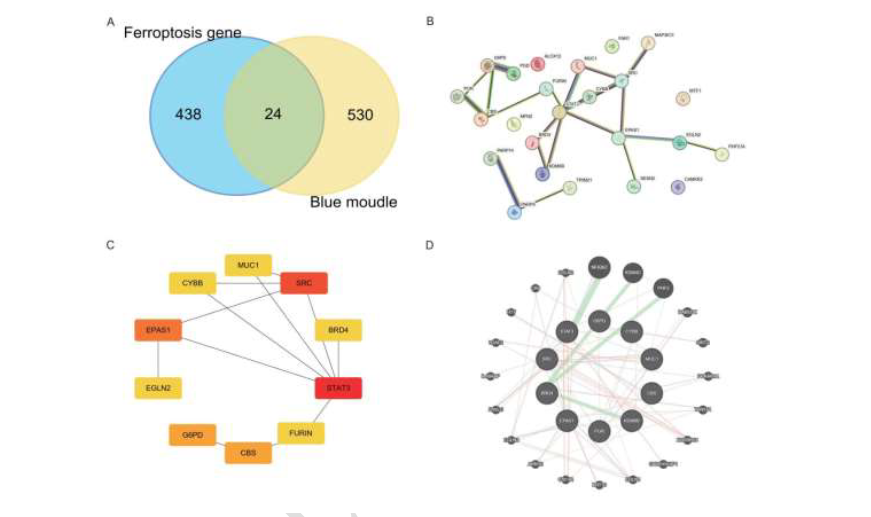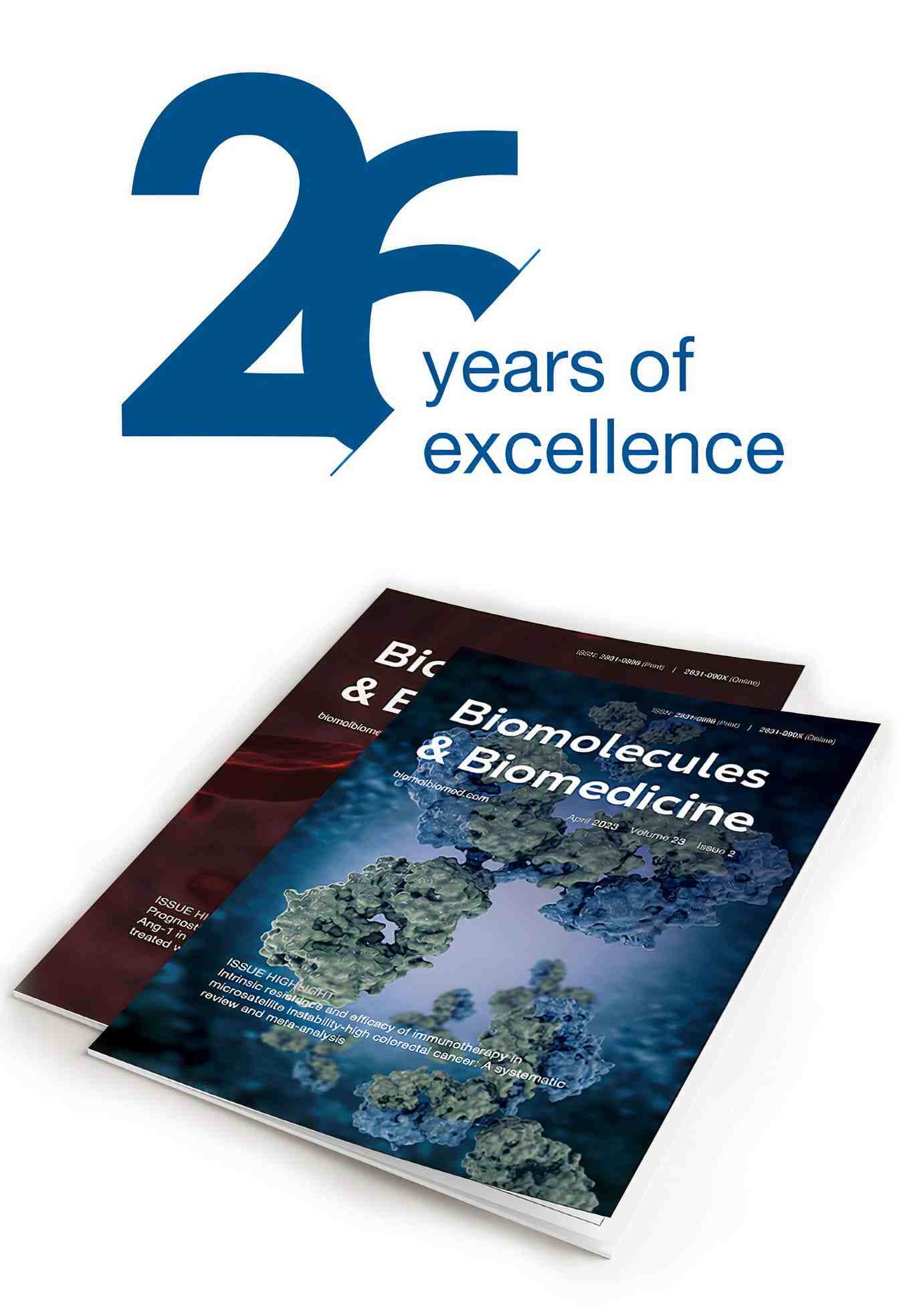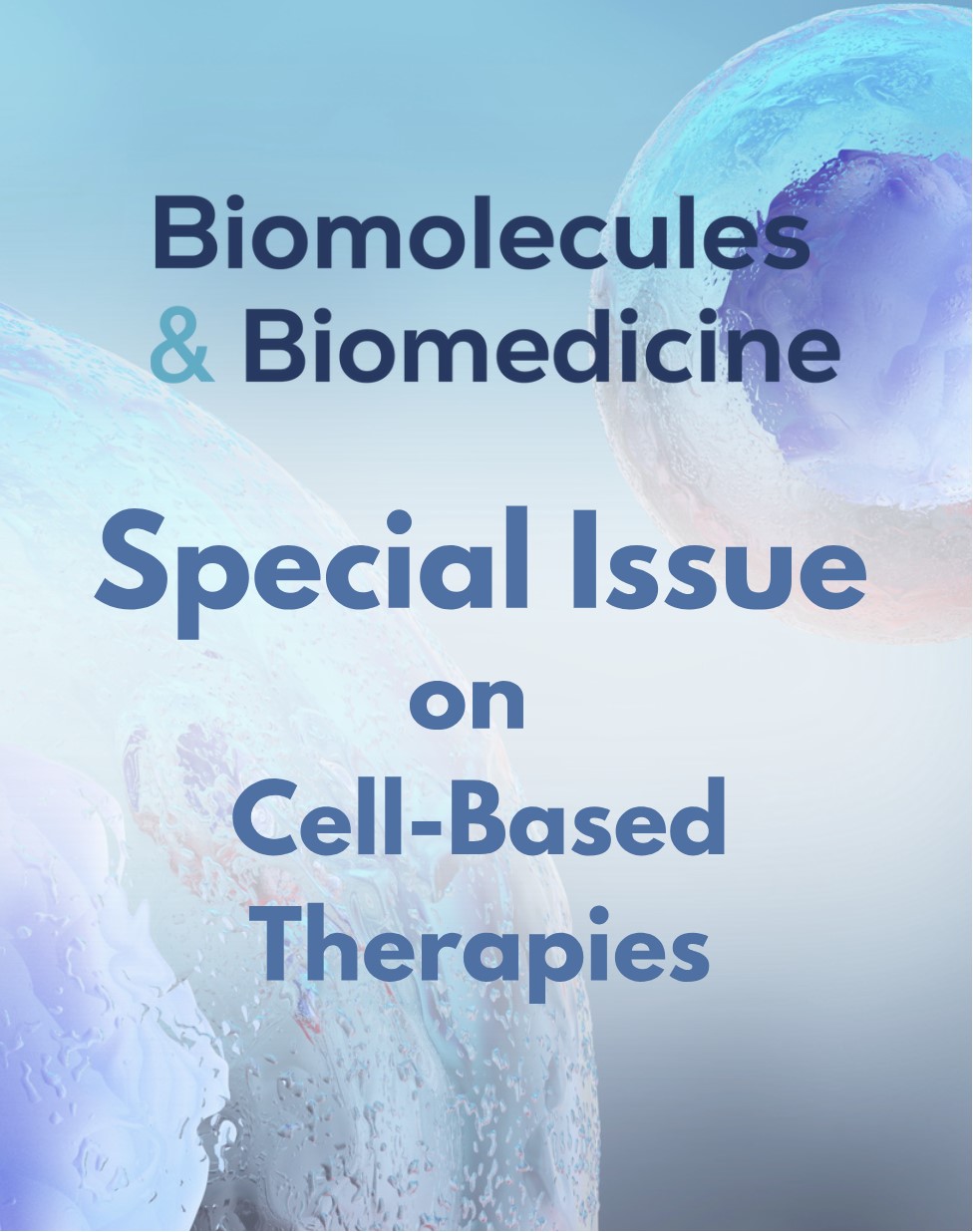EPAS1 amplifies asthma pathogenesis through JAK2/STAT3-mediated ferroptosis and inflammation
DOI:
https://doi.org/10.17305/bb.2025.11334Keywords:
Asthma, ferroptosis, JAK2/STAT3, Endothelial PAS Domain Protein 1, EPAS1, inflammationAbstract
Asthma is a chronic respiratory disorder marked by airway hyperresponsiveness and inflammation, yet the specific molecular mechanisms driving these processes remain only partially understood. This study aims to better understand how the JAK2/STAT3/EPAS1 axis regulates inflammation and ferroptosis in asthma. Asthma-related datasets were retrieved from the Gene Expression Omnibus (GEO) database, and differentially expressed genes (DEGs) were identified. Weighted Gene Co-expression Network Analysis (WGCNA) was used to detect gene modules associated with asthma. A protein-protein interaction (PPI) network was then constructed by intersecting WGCNA-derived genes with ferroptosis-related genes to identify key hub genes. The diagnostic value of these ferroptosis-associated genes was evaluated using Receiver Operating Characteristic (ROC) curve analysis. Additionally, immune cell infiltration in asthma patients was analyzed using the Immune Cell AI database in relation to ferroptosis-related genes. Functional experiments at the cellular level were conducted to assess the effects of key genes on cell viability, inflammation, and ferroptosis. Bioinformatics analysis identified 1,698 DEGs linked to asthma. Five hub genes with clinical diagnostic value— Endothelial PAS Domain Protein 1 (EPAS1), STAT3, G6PD, CYBB, and CBS—were identified. Immune analysis revealed that EPAS1 is closely associated with immune cell infiltration in asthma. Functional experiments further demonstrated that the JAK2/STAT3 axis promotes ferroptosis and inflammatory responses by upregulating EPAS1 expression. Notably, these findings highlight the JAK2/STAT3/EPAS1 axis as a potential therapeutic target for asthma, offering new insights into its molecular mechanisms and identifying novel biomarkers for diagnosis and treatment.
Citations
Downloads

Downloads
Published
License
Copyright (c) 2025 Lili Liu, Cheng Yang, Yan Li, Hao Zhou, Mei Shi, Tiantian Shi, Weibing Shi

This work is licensed under a Creative Commons Attribution 4.0 International License.









